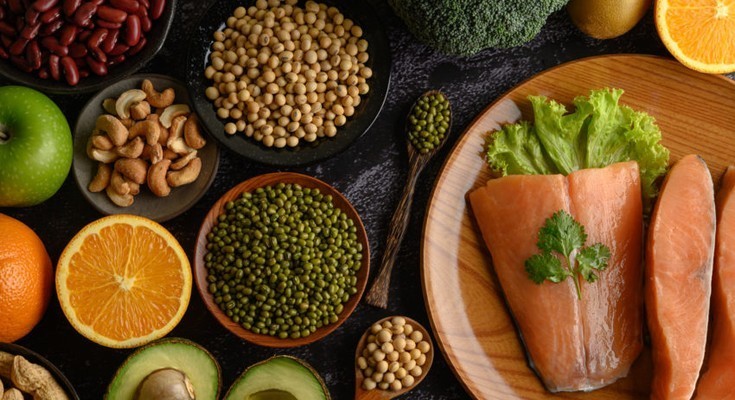The Right Amount of Protein Consumption Your Body Needs Daily
Protein is one of the essential macronutrients your body requires to function optimally. From building muscles to repairing tissues and supporting enzymatic and hormonal functions, protein plays a critical role. But how much protein do you need daily? The answer isn’t one-size-fits-all and varies based on factors like age, activity level, and health goals. Let’s dive deeper to determine your ideal daily protein intake.
Understanding Protein and Its Role
Protein is made up of amino acids, the building blocks of life. It helps in muscle repair, immune function, and the production of enzymes and hormones. For individuals focused on fitness, bodybuilding, or weight loss, protein is especially crucial as it aids muscle synthesis and satiety.
How Much Protein Do You Need?
Your protein requirements depend on various factors, including age, gender, weight, activity level, and health status. Here’s a breakdown:
1. Sedentary Individuals
For people with minimal physical activity, the Recommended Dietary Allowance (RDA) is 0.8 grams of protein per kilogram of body weight. For example, a 70 kg individual would need about 56 grams of protein daily.
2. Active Individuals and Athletes
If you engage in regular physical activities like running, gym workouts, or sports, your protein requirement increases to 1.2 to 2.0 grams per kilogram of body weight. This higher intake supports muscle recovery and growth.
3. Weight Loss Goals
Protein is essential for those aiming to lose weight as it promotes satiety and preserves lean muscle mass. A protein intake of 1.6 to 2.2 grams per kilogram of body weight is recommended for effective weight loss while maintaining muscle.
4. Bodybuilders and Strength Trainers
For muscle gain and intense training, consuming 1.6 to 2.4 grams of protein per kilogram of body weight is ideal. This ensures your body has the building blocks necessary for muscle repair and growth.
5. Older Adults
As we age, our body’s ability to utilize protein declines, making higher protein intake crucial. Older adults should aim for 1.2 to 2.0 grams per kilogram of body weight to maintain muscle mass and overall health.
Best Sources of Protein
While determining your protein needs, it’s equally important to choose the right sources. Here are some high-quality protein options:
- Animal-Based: Chicken, fish, eggs, lean beef, dairy products.
- Plant-Based: Lentils, chickpeas, tofu, quinoa, and nuts.
- Protein Supplements: Whey protein, casein protein, and plant-based protein powders.
Why Choose Whey Protein?
Whey protein is one of the most popular and effective protein supplements available. It is a complete protein, meaning it contains all nine essential amino acids. Here’s why whey protein stands out:
- Fast Absorption: Ideal for post-workout recovery.
- Rich in BCAAs: Branched-Chain Amino Acids (BCAAs) support muscle repair and growth.
- Versatile: Can be added to smoothies, shakes, or even recipes like pancakes and oatmeal.
How to Calculate Your Protein Needs
To calculate your daily protein needs:
- Determine your weight in kilograms (divide your weight in pounds by 2.2).
- Multiply your weight by the recommended protein intake range (e.g., 1.2 – 2.0 grams/kg).
Example: If you weigh 70 kg and are moderately active, your daily protein intake should be: 70 kg x 1.5 = 105 grams of protein.
When to Consume Protein
Timing your protein intake can enhance its benefits:
- Post-Workout: Consuming protein within 30 minutes after exercise boosts muscle recovery.
- Evenly Distributed Meals: Spread your protein intake across meals to maximize absorption.
- Before Bed: Casein protein is a slow-digesting option that helps with overnight recovery.
Common Myths About Protein Consumption
1. High Protein Damages Kidneys
For healthy individuals, high protein intake does not harm the kidneys. However, those with pre-existing kidney issues should consult a doctor.
2. You Can’t Absorb More Than 30 Grams of Protein per Meal
Research shows that the body can utilize more than 30 grams of protein in a meal for various functions beyond muscle synthesis.
3. Protein Makes You Gain Weight
Excess calories, not protein, lead to weight gain. Protein can actually aid in weight management by boosting metabolism and reducing appetite.
Incorporating Protein Supplements into Your Diet
Protein supplements like whey protein are a convenient way to meet your daily protein goals, especially for busy individuals. Choose high-quality products with minimal additives and ensure they align with your dietary preferences.
Final Thoughts
Understanding your protein needs is essential for achieving your health and fitness goals. Whether you’re aiming to build muscle, lose weight, or maintain overall health, tailoring your protein intake can make a significant difference. For premium-quality whey protein and other supplements, explore our extensive range at WheyProtein.in. Fuel your journey with the best!
FAQs
- Can I consume too much protein? While excessive protein isn’t harmful for most people, extremely high intakes can lead to digestive issues. Stick to recommended ranges.
- Is plant-based protein as effective as animal protein? Yes, but combining different plant protein sources ensures you get all essential amino acids.
- How do I choose the right whey protein? Look for high-quality whey protein with minimal artificial additives. Consider your goals when choosing between concentrate, isolate, or hydrolysate.
- Do I need protein supplements? Supplements are not mandatory but are a convenient way to meet protein requirements, especially for active individuals.
Start your protein journey today with WheyProtein.in, where quality meets performance!
Read also: The Ultimate Guide to Get a Lean and Ripped Body: Supplements to Opt for




